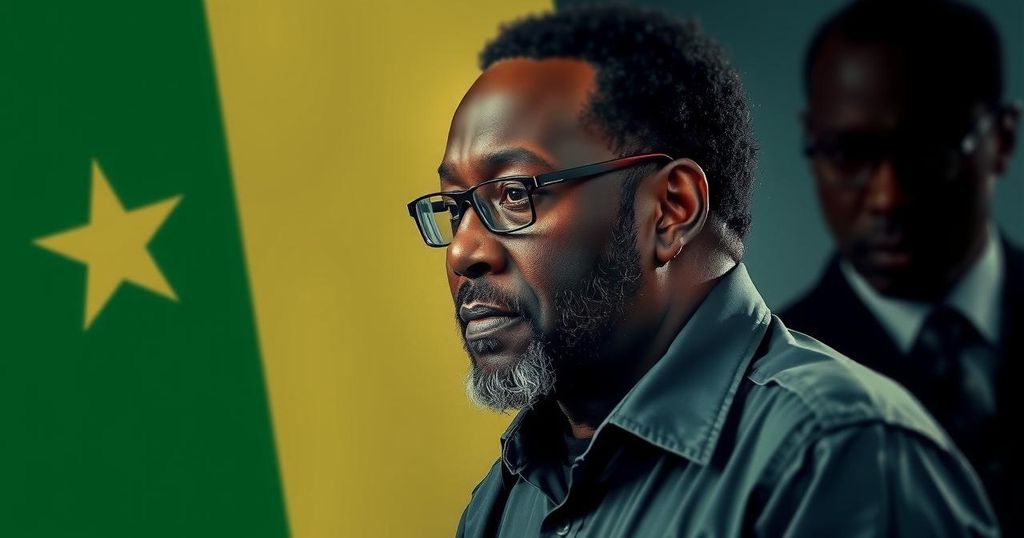Malian Opposition Leader Issa Kaou N’Djim Arrested for Criticizing Junta

Issa Kaou N’Djim, a Malian opposition leader, was arrested for criticizing the Burkina Faso junta. He faces charges of insulting a foreign head of state. His detention raises concerns over political freedoms in Mali, especially as he previously supported the current military regime. Advocacy groups have called for his immediate release.
In Mali, Issa Kaou N’Djim, a prominent opposition figure, was taken into custody by military authorities on Wednesday due to his outspoken criticism of the Burkinabé junta. He faces charges of insulting a foreign head of state, a serious offense under Malian law. N’Djim, who had previously supported Colonel Assimi Goita’s regime before distancing himself, raised concerns regarding the junta’s narrative about a thwarted coup attempt back in November during a broadcast on Joliba TV News. His arrest has raised alarm among human rights advocates, with calls for his prompt release from groups such as Amnesty International. His son confirmed that following the arrest, N’Djim was moved to Bamako’s main prison, underscoring the ongoing risks faced by political dissenters in the region.
Mali and Burkina Faso have been ruled by military juntas since coups in 2020 and 2022, respectively. These regimes have capitalized on popular discontent with previous civilian governments, often citing security challenges to justify their continued governance. The arrest of Issa Kaou N’Djim highlights the tense political atmosphere in Mali, where dissent against military rule is met with severe repercussions. The relationship between Mali and Burkina Faso is complex; they are allies within the Sahelian States Association while simultaneously facing criticism for their autocratic governance.
The detention of Issa Kaou N’Djim reflects the oppressive measures employed by military rulers against political opposition in Mali. His previous support for the junta, followed by his criticism, underscores the volatility of political affiliations in the current climate. The call for his release indicates a growing discontent with the suppression of free expression and reinforces the need for a return to democratic governance in the region.
Original Source: www.senenews.com







